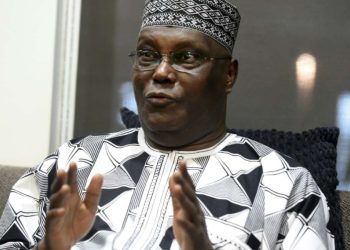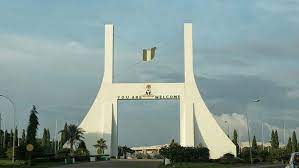By Gregory Mmaduakolam
Experts are of the view that the structure of Nigeria’s economy has changed significantly from what it used to be before independence.
They say that it has transformed from being mainly agro-based to oil export and some level of manufacturing and services.
Before independence, the nation’s economy before was built around agriculture leading to foreign exchange earnings from such farm produce as palm oil and nuts, cocoa, rubber, cashew nuts, groundnuts, timber, hides and skin, among others.
Virtually every part of the country had something to export.
Unfortunately, this pattern of foreign exchange earning was abandoned after independence following the discovery of crude oil in commercial quantities in Nigeria.
The consequence is the mono economy being practiced in the country as past administrations paid lip service to diversification of the nation’s foreign change channels.
Mr Thaddaeus Nnah-umeru, an economist, said revenues from farm produce also enabled the regions to build amenities such as schools, hospitals and textile industries, tertiary institutions like Ahmadu Bello University, among others.
He also said in the immediate post- colonial era, Western region, built University of Ife now Obafemi Awolowo University and Cocoa House while the Eastern region built Nkalagu cement industry among others from its cash crops.
In the face of no viable industrial sector in immediate post –independence Nigeria, agriculture continued as the mainstay of the economy, about 65 per cent to GDP and employing no fewer than 70 per cent of its population.
Some experts say the oil boon of 1970 gave rise to a mostly lazy populace as agriculture gradually took the back seat in the economic drive and oil emerged as the leader.
Mr Victor Odor, an economic historian said that with so much money to spend, the Federal Government astronomically increased workers` salaries in what has become the `Udoji award`.
‘‘In 1972, during Nigeria’s oil boom, the Yakubu Gowon, administration, asked Jerome Udoji, a prominent Nigerian known for his roles in business administration, government service, philanthropy, and a traditional leader, to lead a commission reviewing civil service standards and compensation in the country’’.
“The commission made recommendations, known as the “Udoji Award,” which included salary increases, civil servant training, administrative structure reforms, and the introduction of goal-oriented management’’, Odor said.
“With the award, there was much money in the economy chasing very few goods and services (inflation) remarkably because the government refused to invest these monies wisely’’, Odor said.
He said poor foresight by oil boom-era leaders for the neglect of non-oil sectors, failure to expand public sector infrastructure and deterioration in financial discipline and accountability.
He said the period characterised by corruption led to many foreign companies exiting Nigeria, adding that it has continued till date.
The implication of this, according to him, is economic stagnation, if not retrogression, and lack of diversified economy, making Nigeria vulnerable to the unpredictable of the international oil market.
Prof. Enang Udah, Department of Economics, University of Calabar, said that foreign companies and investors are leaving Nigeria due to harsh economic challenges.
He said that this would have significant economic consequences, including loss of job opportunities and potential negative impact on local businesses and economy.
Udah also predicted that this would lead to decrease in overall economic growth and hinder the nation’s development in key areas as well as low foreign exchange earnings.
He also said it could result in reduced government revenue and increased unemployment rates, contributing to economic challenges for the country.
‘‘Most companies cannot repatriate their dollar earnings because of the volatility in the foreign exchange rate market coupled with insecurity and poor infrastructure in the distribution chain, as well as multiple taxation.
‘‘Driving from the South East to South-South you will see a litany of checkpoints mounted by various levels of governments demanding various forms of taxes from trucks.
‘‘Kidnapping has become big business and security operatives appear to be helpless. Which foreign company doing legitimate business will remain? Those in mining will never leave until the mineral they are exploring gets exhausted.
‘‘Nigeria made progress before and immediately after independence because we had less corrupt and selfish leaders; we had a structured development plan that was followed“, said.
He also blamed the economic challenges on acceptance of economic policies prescribed by Bretton Woods Institutions.
“Corruption, nepotism, inept leaders ethnic and religious sentiments have dampened our progress,’’ Udah, said.
Prof. Adedoyin Lawal, Head, Department of Economics Bowen University, Osun, said foreign companies leaving the country would have multiplier economic consequences for the nation.
Lawal said foreign companies and investors leaving the country would lead to job losses, which, according to him, compound the already bad employment situation in Nigeria.
To curb these economic challenges, Lawal said the Federal Government should fix the power sector and remove multiple taxation for both local and foreign investors.
He further advocated tax holidays for new investors as well as advised Nigerians to patronise made in Nigeria goods and services.
He said it was unfortunate that members of the National Assembly that should lead in the patronage of made in Nigeria products imported their official vehicles when there is a local auto maker.
During the inauguration of his administration on May 29, President BolaTinubu acknowledged the enormity of the challenge of turning the economy around for the better but assured Nigerians that he is equal to the task.
Tinubu vowed to drive economy expansion at the rate of at least 6 per cent annually as well as to lift barriers to investment, create jobs and unify the exchange rate, and tame insecurity.
“On the economy, we target a higher GDP growth and to significantly reduce unemployment,” he said.
He said the ambition would be met through budgetary reform, boosting power generation and improving food security.
“I have a message for our investors, local and foreign: our government shall review all their complaints about multiple taxation and various anti-investment inhibitions,” Tinubu told his audience.
But as some Nigerians feel uncomfortable with the pace of the promised economic transformation, there have been calls for caution and patience with the president.
“I can assure Nigerians that the president is working hard to fix the economy, and serious work is ongoing to reposition the economy so that citizens can enjoy the dividends of democracy.
“The reformation process is not easy, and that explains why we are experiencing what we are experiencing presently.
“I appeal to Nigerians to be patient as things will be alright soon,“ Mr Abiodun Faleke, a member of the House of Representatives from Ekiti State, recently told his constituents at a town hall meeting in Lagos.
With continued rise in inflation and high cost of living, Nigerians want Tinubu to expedite action on his economic rescue agenda. Many Nigerians think he has the potential to do.
They point at his sterling economic performance as Lagos governor as example of what can do.














